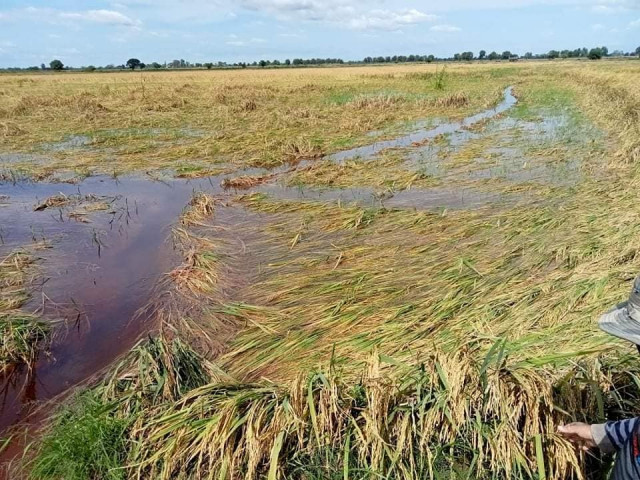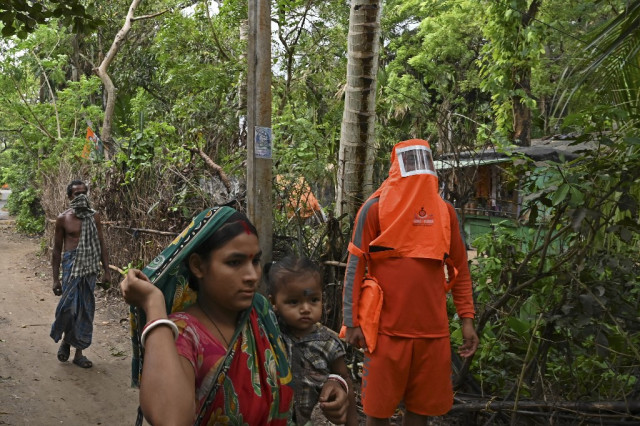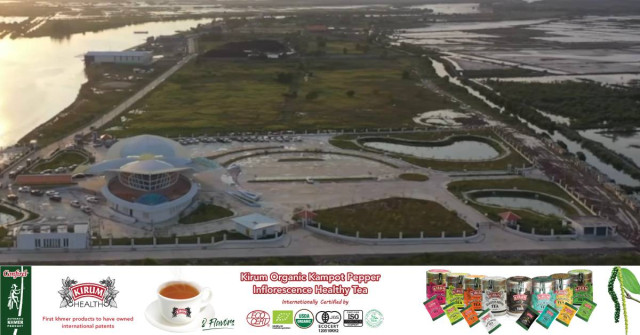Rain Devastates Dry-Season Rice Crop

- By Chhum Chantha
- and Phoung Vantha
- April 8, 2022 6:32 PM
Farmers struggle as running costs soar
PHNOM PENH – Hundreds of hectares of dry-season rice which are nearly ready to harvest have been severely damaged by more than a week of continuous rain.
Farmers said they face a loss of more than half of their crop while the prices of fertilizers and pesticides continue to rise, making it harder for them to make a profit and leading to more debt.
Chea Seang, from Por Rama village in Kandal province, said his four hectares of dry rice paddy fields were flooded by the rain. Two hectares were completely damaged.
His rice and that of other farmers were ready to harvest but more than a week of rain had devastated the crop.
"When the farmers just started harvesting, it rained all the time as if it does not want us to harvest," he said.
"In previous years, I also experienced floods, but there was slight damage, unlike this year when it affected us a lot."

He could lose 50 to 70 percent of his rice yield and fears the repercussions after gasoline and pesticides doubled in price.
Every year, he borrowed money for fertilizers or pesticides to be used on his rice fields and paid it back after the harvest.
For four hectares of land, he had to pay more than 10 million riel, while the profit was only four million riel. After such a severe impact, he did not expect to have enough money to pay for fertilizers and pesticides.
"This year, fertilizer prices have doubled, such as Vietnam's urea fertilizer, which previously costs just over 80,000 riel, but now stands at 180,000 riel per bag," he said.
Meanwhile, the price of rice had dropped sharply, selling to Vietnam at just over 700 riel per kilo.
He called on authorities, especially the provincial Department of Agriculture to look at the impact of the flood-rain problem and help find a solution.
Provincial agriculture department director Bun Tuon Simona said he had not yet received any information about this issue.
Chhin In, deputy chief of Prek Sdey commune, said that from March 25 to April 4, more than 246 hectares of paddy fields in the commune had been flooded, of which 13 hectares were completely damaged.
Authorities tried to release the water but this seemed to be slowing down due to rising water levels, he said.
He said more than 700 hectares in Kampong Kong, Leuk Dek and Sampeou Poun communes were also affected.















